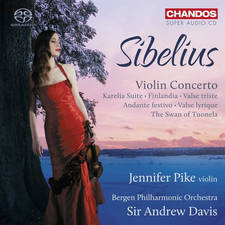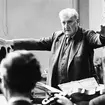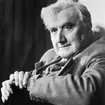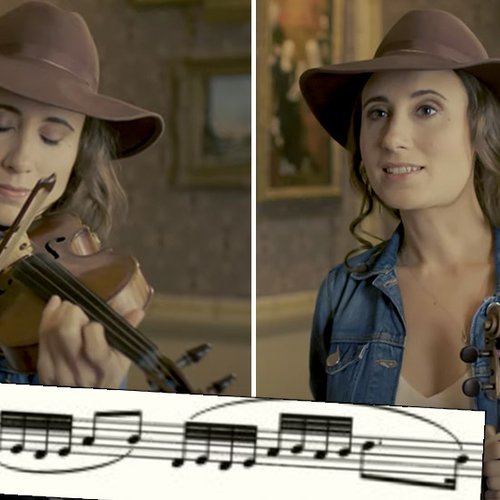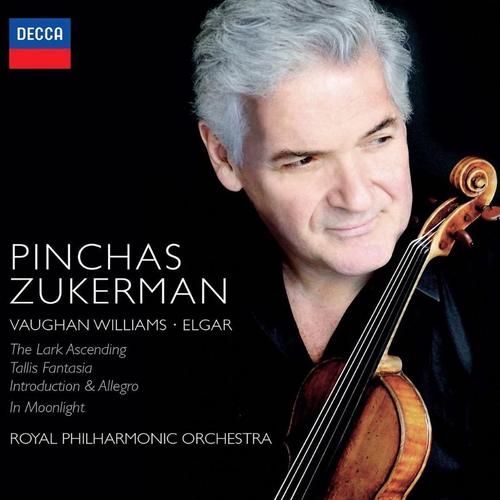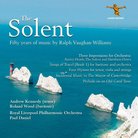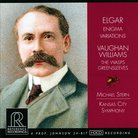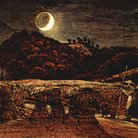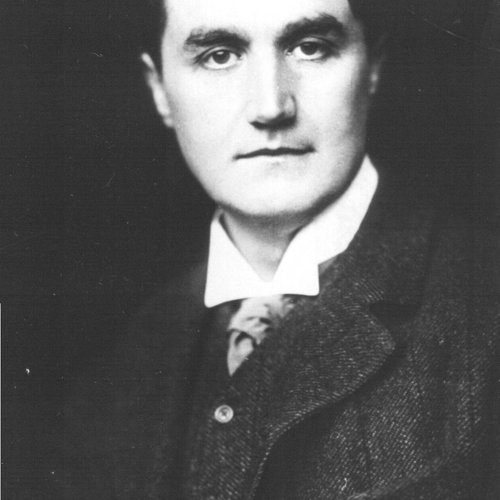Vaughan-Williams Re-Assessed
Classic FM breaks down some of the popular myths surrounding the greatly revered English composer, Ralph Vaughan-Williams.
Ralph Vaughan-Williams bestrides English music in the 20th century like a colossus. Every aspect of our musical life stands in his shadow. He helped kick into life the National Youth Orchestra and the Arts Council; and The English Hymnal, which he edited in 1906, provided the Anglican Church with a veritable hit parade of hymns and carols, many of which Vaughan-Williams wrote himself although he never admitted as much until late in life – All People That On Earth Do Dwell, For All The Saints and O Little Town Of Bethlehem, to name just three.
The hundreds of folk songs he collected with Cecil Sharp and Gustav Holst saved an entire world of indigenous music that was in danger of vanishing, and he provided the Camargo Society (which led to the formation of the Vic-Wells Ballet, which became The Royal Ballet) with its first full-length work, Job.
His patronage of the Leith Hill Music Festival revitalised a tradition of amateur choral singing that has been of widespread importance and his rediscovery of the power and sound of Tudor and Elizabethan music has influenced every British composer since. And all this quite apart from his own great music: nine symphonies, concertos for piano, violin, tuba, harmonica, operas, ballets, film scores and songs - masterpieces poured out of him in every genre.
Despite all this, the image we usually have of him – a sort-of crumpled, cuddly, old John Betjeman uncle – is a million miles from the reality. He was related, either directly or by marriage, to Darwin, Wedgwood, Maynard Keynes and Virginia Woolf, and was therefore centre-stage among the intellectual aristocracy at the beginning of the 20th century.
He attended Charterhouse, before moving on to the Royal College of Music (he was, according to his family, a lousy performer), Trinity College, Cambridge (where he was sent by his mother to get a “proper education” by studying history), and then back to the Royal College to learn from Parry and Stanford.
A devastatingly handsome young man, he never actually needed to earn his living. Nonetheless, in spite of his privileged and sheltered background, aged 41 he volunteered for the infantry during the First World War. Fortunately, his poor eyesight condemned him to the Ambulance Corps, picking up bits of bodies blown apart in the Battle of Vimy Ridge.
During the Second World War, by now the most revered English musician alive, he cleaned public lavatories and became a rag-and-bone man, collecting any old iron for the war effort.
His charm and good looks made him a focus of attention for innumerable ladies, but when he married in 1897 he remained utterly devoted to his first wife, Adeline, for almost 54 years. The tragedy is that for much of that time she was confined to a wheelchair. This, together with his appalling experiences in the First World War, had the most terrible affect on him as a man and, perhaps more importantly, on his music.
The idea that Vaughan-Williams’ work is little more than a peaceful evocation of England and Englishness is, consequently, absurd. This also puts into context the association between the composer and folk music; yes, together with Cecil Sharp and Gustav Holst he “collected” numerous folk songs, but most of these he never actually used in his compositions.
His encounter on December 4 at Ingrave in Essex when Mr Charles Pottipher sang Bushes And Briars is quoted everywhere as Vaughan Williams’s “eureka” moment, but it just won’t do. It was another folk song he heard at about the same time, usually called The Captain’s Apprentice, which changed forever his musical vocabulary. Its aching melody, used in The Norfolk Rhapsody, is Vaughan-Williams, not so much the notes as the profound heartache – a heartache made almost unbearable by the onset of his beloved wife’s illness.
Equally absurd is the belief that Vaughan-Williams was a “religious” composer, extolling the worship of an Anglican God. It’s true that his father was the vicar of Down Ampney in Gloucestershire, but his orchestral music, for instance, contains some of the most unsettling and bleak music of our time. One example is the Fantasia On A Theme by Thomas Tallis, one of his most popular pieces, which is often described as a work of deep spirituality. Its theme comes from a hymn by the great Tudor composer Thomas Tallis, which Vaughan Williams included in his English Hymnal (No.92). The 19th-century words begin: “When rising from the bed of death…” while the opening chords come from one of the composer’s earlier works, Toward The Unknown Region, which, like the text, is also about death. In its historical context, the Tallis Fantasia, premiered in 1910, is therefore a cry of pain for a world about to tear itself apart on the battlefields of Flanders and the Somme.
Another example is The Lark Ascending, the 2007 and 2008 Classic FM Hall of Fame No.1. Contrary to popular belief, it is not the ultimate sound-picture of the English countryside. In late August 1914, Vaughan Williams was staying with friends in Margate. He wrote The Lark on a hill overlooking the harbour, as a lament for the troops departing like cattle to be slaughtered in France.
It could be argued that the whole of his music holds a clear-sighted mirror to the squalid and bloody century that he witnessed, which is not the least reason he became increasingly preoccupied with trying to better that world – as evidence his work setting up the Arts Council, the National Youth Orchestra and so on. He saw the artist taking centre-stage in the political upheavals of the time, not a peripheral figure who lived in a garret belonging only to the elite.
But in the development of English music, what is Vaughan-Williams’ importance? Michael Tippett put his finger on it when he described his relationship with Vaughan-Williams and his music. As a young man, Tippett despised Vaughan-Williams and all he stood for. Then, after the Second World War, possibly because Vaughan-Williams had stood as a character witness for Tippett at his trial as a conscientious objector, he came to realise that “there was an essential goodness about the man.”
However, it was only after Vaughan-Williams died, Tippett said, that he began to understand that it was “Vaughan-Williams, rather than any other of his contemporaries, who had made us free”. In other words, he had broken the shackles of German influence over English music that had restricted our musical life (Tippett felt) for several hundred years.
Perhaps because of Vaughan-Williams’ success in breaking free of the German influence, it’s often said that his music is so English that it could not possibly appeal outside these shores. Strange to realise, then, that there are more performances of his symphonies in Germany than in England.
It’s strange, too, that the American composer John Adams was hugely influenced by Vaughan Williams. Apparently, when he was nine he was taken to his first orchestral concert. Until that moment he had wanted to be an engineer. The first piece of the night was the Tallis Fantasia. On hearing it he turned to his father and said, "I want to be a composer… like that."
The esteem and affection in which Vaughan-Williams was held when he died, on August 26, 1958, can be measured by one simple fact. Westminster Abbey held not a memorial service but the composer’s actual funeral only nine days after his death – he was the first commoner to be buried there for almost 300 years.
Coincidentally, the previous funeral for a commoner had been for Henry Purcell, the great English composer and sometime organist of the Abbey, and it was next to Purcell that Vaughan-Williams’s ashes were laid to rest. It was a singular honour befitting a singular man, in whose debt we will always remain.
The Essential Collection
For the complete picture
Symphonies Nos 1-9 (1903-58) Various orchestras/Adrian Boult
The nine symphonies represent a pinnacle of 20th-century English music, from the Symphony No.1, ‘A Sea Symphony’, a thrilling piece for orchestra and choir, to the grimly prophetic Symphony No.9, first performed a few months before the composer died. This box-set of works conducted by Adrian Boult, who had known Vaughan Williams all his professional life and conducted many of his world premieres, is indispensable.
EMI Classics 573 9242
For the definitive ballet score
Job – masque for dancing (1931) London Philharmonic Orchestra/Vernon Handley.
Although described as a “masque for dancing”, Job survives more as an orchestral suite. Its first staging was conducted by Constant Lambert with choreography by Ninette de Valois. Its success encouraged them to go on and establish what became The Royal Ballet.
EMI Classics for Pleasure 575 314
For just a few of the songs
On Wenlock Edge (1909-10, orch.1921-23) Robert Tear (ten), Thomas Allen (bar), CBSO/Rattle
The song-cycle On Wenlock Edge paved the way for Britten, Tippett and Arnold by proving you could set an English poem to music without sounding like Gilbert and Sullivan. From Far, From Eve And Morning is probably the greatest song in the English language since Purcell.
EMI Classics 764 7312
